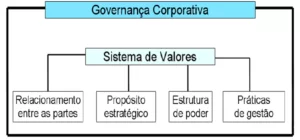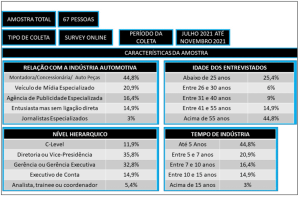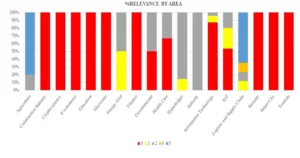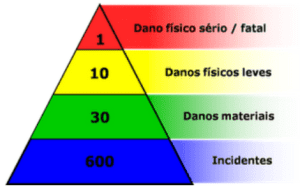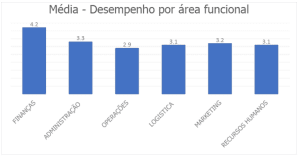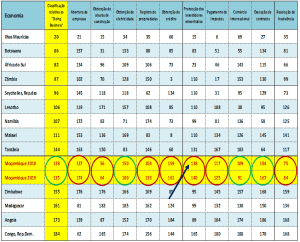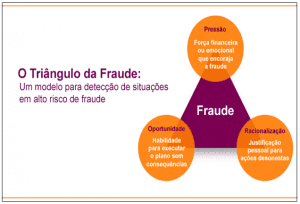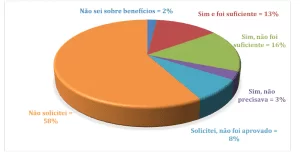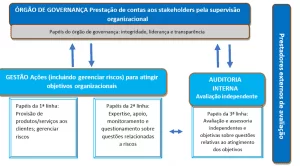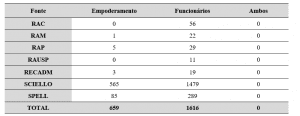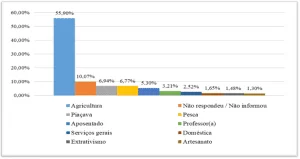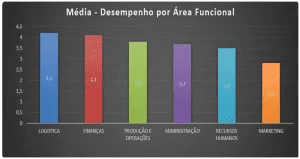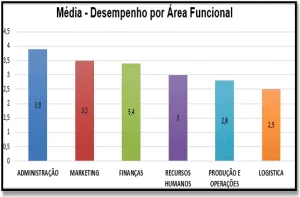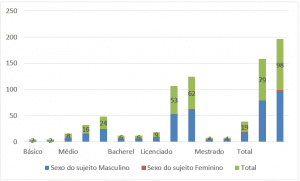ORIGINAL ARTICLE
CARVALHO, Rogério Galvão De [1], MONTEIRO, Marcel Stanlei [2]
CARVALHO, Rogério Galvão De. MONTEIRO, Marcel Stanlei. Analysis of the scientific conduct of the economist, currently, in the use of the Rational Choice Theory. Revista Científica Multidisciplinar Núcleo do Conhecimento. Year 05, Ed. 11, Vol. 03, pp. 91-106. November 2020. ISSN: 2448-0959, Access Link: https://www.nucleodoconhecimento.com.br/business-administration/scientific-conduct
SUMMARY
The Theory of Rational Choice (TER), in the first half of the twentieth century, through a very well-elaborated technical-scientific framework, systematized the hypothesis of economic rationality (HRE) and the existence of homo economicus (HE), with the purpose of normalizing and describing man’s behavior in the economic decision-making process. This theory considers that HE makes an optimal choice in this economic decision-making process through mathematical calculation of function optimization. This theory establishes that the HRE meets both normative and descriptive aspects in the scientific sphere. Based on TER, economists begin to adopt, in their models and scientific experiences, HRE as a descriptive variable of the behavior of economic agents. This research then aimed to contribute to the theoretical debate of economic science, based on an epistemological problem identified, in the scientific production of the economist of the 21st century. With the information that there is no good results in these experiences, and that, still, the economist, of the 21st century, continues to adopt this hypothesis in the descriptive part of scientific production. Therefore, the epistemological problem of the use of a refuted hypothesis, not valid, for subsequent scientific production is corroborated. Thus, to evaluate the conduct of this scientist, in relation to the epistemological problem identified, the article was structured as follows: (I) Brief contextualization of the problem, in the introduction; (II) Theoretical discussion, evidencing the refutation of the hypothesis and establishing some premises for the conduct of economists of the 21st century, in the theoretical framework; (III) Analysis from the point of view of ethics, whether this is an expected or deviated behavior, using the utilitarian current for this purpose; (IV) Specific section to deal with the epistemology developed by TER scientists, which may have contributed to the empirical rebuttals not being able to achieve the HRE of this theory, greatly influencing the misconduct of these economists and finally (VI) the conclusion.
Key Words: Economic Philosophy, Rational Theory of Choice, Hypothesis of The Economic Rationality of Agents.
1. INTRODUCTION
The Discussion about the existence of the economic rationality of agents (consumers, producers and government) in economic decision-making processes, that is, a rational choice from the point of view of the decision when buying, selling, or producing goods (or services), or even regulating markets is a historical discussion. Since the 17th century, the thinkers of economic science have discussed this subject.
For example, for Poundstone (2011), in the early days economic science abstracted itself from the other dimensions: moral, religious, political, cultural, etc., to focus its investigations on the two elementary functions performed by each and every individual: consumption and production, completely ignoring any other part of human life. Homo economicus emerges as the rational agent, a fragment of the human being, which produces and consumes, according to “norms” supported by the evidence of observations.
According to Albou (1984), the main philosophical currents that are responsible for the concept of economic rationality are: hedonism and utilitarianism. In hedonism, man is subject to natural law seeking pleasure and well-being and avoiding pain. In Utilitarianism, the search is for what is useful or valuable. In the 20th century, however, the Rational Choice Theory (TER) systematized this discussion and became the mainstream of economic science when it comes to this.
The understanding of economists, adherents of TER, is that the behavior of economic agents to choose, in the economic decision-making process, involves solving a mathematical problem of function optimization, with restrictions, that is, homo sapiens transforms into homo economicus and chooses optimally how to proceed at that moment (buying, selling, producing or regulating) , mathematically calculating the optimal choice.
According to Fernandez and Bèrni (2014), a recurrent criticism of the HRE concerns the shielding of the theory against refutation and another refers to the empirical inadequacy of this hypothesis from the epistemological point of view. Despite the shielding, as found in the authors’ article, there are several empirical proofs that, in the descriptive part of the behavior, most of the time the optimal choice does not happen, that is, when describing human behavior, using HRE, with regard to the choice of the economic decision-making process, the scientist did not have good results, in his experiments, that is, the HRE had been proven to be refuted several times.
Hence the idea of questioning why economists continue to use, in this case, the HRE for agents, when it comes to trying to describe the behavior of human beings, with regard to decision-making, when it comes to the optimal economic choice. Why, in this case, is TER still treated as mainstream in the scientific production of economists?
It should be emphasized that it is not a discussion about the refutation of the hypothesis, because according to recent economic theories, it is refuted, with regard to the descriptive axis of science, according to them there are so many limitations, that the model does not serve, to describe the economic behavior of human beings in the day to day, being still quite useful in the normative part for the production of economic science.
I also point out that although technically the modeling , (especially in the field of economics), start from relatively false hypotheses, adopt very hard statistical tests (for the validation of premises) and to commend the results with reality.
The results in the case of HRE, in an attempt to describe or explain the real behavior of man, were not promising, did not work, did not confirm with what really happened, making it clear that the homo economicus of HRE, may be relevant only in the normative scope of economic science.
This article tries to contribute to the debate as follows: (1) evidencing the refutation of the hypothesis and establishing some premises for the conduct of 21st century economists; (2) analyzing from the point of view of ethics, whether this is an expected or deviated behavior, using the utilitarian current for this purpose; and (3) basing one of the probable hypotheses for this conduct, with the analysis of own epistemology created by TER.
2. THEORETICAL FRAMEWORK
According to Thaler (2019), The Theory of Rational Choice – TER, contains a solid and robust logical-mathematical framework, where it is defined that economic agents are rational and each solves a problem of maximization of function, subject to restrictions, to obtain the optimal choice in an economic decision-making process. It assumes that economic decisions are made based exclusively on economic aspects of personality, homo economicus arises, to the detriment of homo sapiens.
For Fernandez and Bèrni, (2014), with regard to HRE, there are eight most relevant aspects in the choice of agents: (1) Determined and orderly structure of preferences; (2) They are complete and transient; (03) They are exogenous and remain unchanged during the exchange process; (04) The preferences of each economic agent are independent and incomparable to each other; (05) Agents attribute different utilities to the possible results of their actions; (06) They also attribute probabilities to the expected results; (07) They act fundamentally driven by self-interest; and (08) The result is the average of utilities weighted by the probabilities of occurrence of the different states, their expected usefulness, which strive to maximize.
But with regard to the descriptive scientific aspect of HRE, that is, the behavior of the human being in the decision-making process, for the optimal choice, fragility is recognized, in several later economic theories, in particular the Theory of Decision, Simon (1976); and the Theory of Prospectus, Kahneman and Tversky (1974) and finally the criticism of Green and Shapiro (1994) that draws attention to the descriptive part of the HRE instituted by TER, with the bad results of empirical models.
These authors have an idea totally contrary to the ideas postulated about homo economicus, which is the being that symbolically makes all decisions based exclusively on economic aspects, creating rational expectations for economic agents. According to these thinkers, when it comes to the descriptive part of scientific production, HRE, is not a good option, that is, this hypothesis does not describe or explain the real behavior of human beings when it comes to the economic decision-making process.
According to Simon (1978), the decision-making process involves three phases (1) prospecting, which consists of determining the possible strategies in the economic decision-making process; (2) the concept of determining the possible consequences of the choice; (3) the decision itself, that is, the choice of the best alternative among the possible ones.
In this context, the author emphasizes the impossibility of the economic agent, knowing all the alternatives and inferring the respective consequences during the economic decision-making process and thus optimizing the choice. Thus, it establishes the stochastic possibility of choice and not deterministic, as the supporters of TER intended.
In a way, Sem (1999) based on utilitarianism, does not agree with reducing the utility criteria to a single element, although it facilitates the calculation of utility, the cost is to lose one’s own justice sought. He criticizes the reductionist conceptions that are usually intrinsic to economic thought.
According to Kahneman and Tversky (1974), when analyzing behavior in relation to risk, for agents in the economic decision-making process perceived different choices, aversion occurs when it comes to gains, but when it comes to the possibility of loss, this individual tends to be prone to risk. Therefore, on the one hand agents are risk averse to gains and on the other, they are prone to risk for losses. This, in fact, corroborates the refutation of the HRE, to describe or explain the behavior of the human being of optimal choice in economic decision-making processes.
Also with regard to the exchange of preferences in the course of economic decision-making processes, according to Kahneman and Tversky (1979), some effects were identified, they called: (1) sure effect, individuals compared the possibilities of a certain event to a probable event and chose the right event, even if the event is likely to be better. (2) reflex effect, (risk aversion when it comes to gains and propensity to risk in the field of losses) people sought safe gains and risky losses. (3) the effect isolation agents who presented difficulties in recognizing their errors.
For Green and Shapiro (1994) the big problem focuses on the fact that TER does not fulfill its role. The root of the imbalance between the construction of theory and empirical work lies in the scientific ambition of rational choice to come up with a universal theory, despite a disappointing empirical history. According to them, the claim of scientific universality is echoed and reinforced by the way TER has been conducted, when theoretical work is allowed to have greater recognition than empirical studies. This situation created an encouraging effect in which scholars of rational choice focus their efforts on thecrafting theories and paying little attention to how these theories could be operationalized and tested.
This dichotomy, still according to the authors, is a cause for alarm because the search for theoretical explanations deduced from general equilibrium models led to a pattern of explanatory inadequacies: hypotheses are formulated in ways inherently resistant to genuine empirical tests, and with this: (1) there is no attention to competing explanations; (2) deductive arguments are changed in later improvements to circumvent the results, the concrete facts. These pathologies are dangerous because they threaten the scientific validity of TER.
The empirical works that followed over the years, after the consolidation of TER, as a mainstream of economic science, Tversky and Kahneman (1981), Dosi and Egidi (1991) and Kreps (1990) show that there is no doubt that the HRE of agents (homous economicus) is so restrictive that it cannot be considered as a valid presupposition for advances in this area of knowledge , with regard to its descriptive aspect of science, that is, to describe the economic behavior of man in decision-making processes, using mathematical calculations to define an optimal choice.
According to the authors, even though the models are relevant to science, they start from a false hypothesis, because it elects only a few variables, to try to describe, or explain the problem variable (explained), the HRE of the agent should not be used, because it had been proven to be refuted.
In Brazil, for example, according to the National Household Debt and Consumer Disability Survey, conducted by the National Confederation of Trade in Goods, Services and Tourism (CNC), the percentage of households with credit card debts, special checks, pre-dated checks, payroll credits, personal credits, store cards, car payments and domestic payments in December 2019 was 65.6% (sixty-five point six percent).
With the previous example, it is clear that (in everyday life), there is no homo economicus, most consumers, with regard to solving the problem of maximizing the usefulness of consumption restricted to the income of said consumer, misses their optimal choice.
Still, according to Foley (2003) most economists of the 21st century, still use the precepts of TER, with regard to the HRE of agents, in decision-making processes, to try to describe the behavior of economic agents, when they produce scientific knowledge when elaborating their models, recursively improved, seeking increasingly to specify them (including or removing variables).
This scientist, the 21st century economist, according to the author, believes that on average man, turns into a kind of robot, and acts on the basis of solving a mathematical problem of function optimization with restriction, to make the optimal economic choice. Then, the belief arises that if the facts do not corroborate the TER, this is due to the fact that the proposed model needs reformulation, to be better specified, and to adapt to reality.
One of the precepts of epistemology for the production of knowledge to be considered scientific (and perpetuated as science) is that, faced with a refuted hypothesis, therefore of null validity, two attitudes are expected: (1) that this hypothesis should not be used as the basis of subsequent scientific production; and (2) that it is of care for the substitution of this hypothesis, which is not valid. With this visible epistemological problem, the idea is to try to understand why these economists still treat TER as a mainstream of economic science, with this we point out some probable hypotheses for this scientific behavior, which is perceived are: (1) The scientific, academic and technical reputation of the economist; (2) The belief that THE hasn’t been refuted; and (3) the formulation of an epistemology of its own by TER. Therefore, we will evaluate in the next sections the conduct of the economist. This evaluation, from the point of view of the utilitarian current of thought of ethics, consists in defining whether such conduct is an expected conduct or a deviation of conduct.
Moreover, in the last topic of this work there is an analysis of the specific epistemology developed by the Chicago school, on TER, which is perhaps the key point of the philosophical discussion of why TER is still considered, by contemporary economists, as mainstream of this science.
3. ANALYSIS OF UTILITARIAN ETHICS
According to Leclercq (1967), there are three types of thought that are related to morality: (1) normative thinking, such as that of Socrates who asks what is right or good; (2) analytical, critical or meta-ethical thinking, which consists in the answer of logical, epistemological or semantic questions; and (3) thought that focuses on empirical and descriptive research, historical or scientific, whose objective is to describe or explain moral phenomena or to construct a theory of human nature that refers to ethical issues. This is the type developed by John Stuart Mill.
Utilitarianism presents useful action as the correct action. The term, according to Vasquez (1993), was first used in Jeremy Bentham’s letter to George Wilson in 1781 and put into common use in philosophy by John Stuart Mill in utilitarianism in 1861, the term “utilitarianism” refers to the theory advocated by Bentham and Mill, maximizing the promotion of happiness.
In the utilitarian doctrine of Jeremy Bentham and John Stuart Mill, the principle of maximum well-being prevails, that is, the expected behavior, in this particular case, of the economic scientist, should be to extract the maximum benefit from his action, when producing science. The broader concept of utilitarianism prioritizes rules over individual moral actions.
The usefulness, according to Baumer (1977), meant a concern for general well-being, associated with a happiness of human beings, both individually and collectively, which could only be achieved experimentally. The utility, then, was based on the facts selected by the experience.
Thus, with regard to scientific production, according to the precepts of this current of thought, for this ethical dilemma, we can infer that the expected conduct of the 21st century economist (when producing science) would be exactly what epistemology recommends to preserve scientific knowledge as such, that is, to: (1) not to use the hypothesis refuted as if it were valid; (2) to take care of replacing the null hypothesis with a valid one.
If the expected conduct of the scientist is not to use a refuted hypothesis, as if it were valid, to elaborate his theoretical or empirical models. So, in this case, these economists have an ethical misconduct, because the best thing for economic science, with regard to their survival as a science, is to respect the precepts of philosophical epistemology.
4. EPISTEMOLOGY OF THE THEORY OF RATIONAL CHOICE
According to Fernandez and Bèrni, (2014) the hypothesis of economic rationality consists in the existence of homo economicus is implemented in 08 (eight) basic hypotheses about the behavior of agents in their interactions, which will structure the conception of rational behavior, according to TER.
They can be simplified as follows: (1) agents have a determined and orderly structure of preferences (which represent their wishes); (2) the preferences are complete (the agent prefers one good to another or vice versa or remains indifferent between the goods) and transitory (if the agent, in front of three goods, prefers one good to another and this to the third well, then he will necessarily prefer the first to the third well); (03) preferences are exogenous (formed outside the scope of modelling) and remain unchanged during the exchange process; (04) the preferences of each economic agent are independent and incomparable with those of other agents; (05) agents attribute different utilities to the possible results of their actions, (06) agents attribute probabilities to the achievement of the expected results, to which utilities have been attributed; (07) individuals act fundamentally driven by self-interest: They act with the aim of satisfying their personal interests, without taking into account other aspects considered irrelevant in the process; (08) as the beliefs of the agent are shaken by uncertainty about obtaining specific results, its decision-making will consider the average of the utilities provided by the actions adopted in response to the probabilities of occurrence of the different states, their expected usefulness, which they strive to maximize.
According to Karl Popper in Fernandez and Bèrni, (2014), these hypotheses are irrefutable, especially since they are not situated on the logical-theoretical plane. The irrefutability of the principle of rationality would result from the fact that it is situated in a logical plane “superior” to the theoretical plane, the methodological (or meta-theoretical) plane.
With the cognitive structure of the irrefutability of this hypothesis, the postulators of TER created their own epistemology, a kind of shield, where empirical experiences and observations of data in real life cannot, precisely because they are situated in a lower plane, contradict the hypothesis of the economic rationality of agents, that is to say that the premise of homo economicus, has a differentiated status , that is, it cannot be considered, neither an axiom, nor a law, nor an empirical hypothesis of the theory, according to the authors.
Strengthening Green and Shapiro’s (1994) thinking about the incentive effect in which scholars of rational choice focus their efforts on thecrafting theories and paying little attention to how these theories could be operationalized and tested.
Hence, based on these considerations, about TER and its differentiated epistemology, it can be inferred, with the help of Tribe (1997) and Karl Popper in Fernandez and Bèrni, (2014), that there is a difficulty on the part of economists of the 21st century to accept the rebuttal of the hypothesis, even if the empirical data show otherwise.
5. CONCLUSION
This work was based on recent discussions about the economic rationality of the agents, with regard to the optimal choice, when it comes to the economic decision-making process. The problem discussed was the scientific production of economists of the 21st century, based on a refuted hypothesis, in the descriptive context of the formulation of economic science, when it comes to this subject.
First, the problem identified, in the first section and systematized, in the following section, a theoretical reference was contextualized to corroborate the refutation of the HRE of agents (consumers, entrepreneurs and government), that is, the existence of homo economicus when it comes to real decisions, of daily life.
It is important to emphasize that the empirical models, based on this hypothesis, elaborated by economists, to describe the choice of agents, in a decision-making economic process, did not have good results when trying to describe the choice of human beings. Despite the proven refutation in the descriptive aspect of scientific production, on the other hand, the hypothesis still remains valid for the normative issues of economic science.
Then it was discussed (from the point of view of the utilitarian current of ethical thought) with the intention of evaluating the conduct of the economic scientist of the 21st century, whether such behavior is an expected conduct or whether it is a deviation of conduct. According to this current, it was concluded that the attitude (in scientific production) of economists is a deviation of conduct from the utilitarian ethical point of view.
In the course of the analysis of the ethical question of the behavior of the economic scientist, it was observed that perhaps the problem is not so much the ethical conduct diverted by these economists. The biggest problem revealed (as we can see in the last section) would be the differentiated epistemology of TER, which strongly protects the construction of this scientific framework.
In this last section, according to the cited authors, the existence of irrefutability of the HRE of the agents is noted, because of this premise elaborated at an almost meta-theoretical level, obscuring, according to the authors who dealt with the subject, the understanding (on this point) and the attitudes of economic researchers.
Thus, the theoretical organization of the HRE of the agents (revealing the supreme existence of homo economicus) around TER, whose differentiated epistemology does not allow refutation, by empirical evidence, may have been a strong reason why economists still use this hypothesis, as if it were valid, in the scientific production of economic models, with regard to the descriptive part of human actions in relation to the choice in the decision-making processes of the economy. Demonstrating the belief that, at least for them, the HRE of the agents, can not be refuted, what can be done is, increasingly, specify better the models so that they can calculate more accurately the maximization of the problem of optimal choice.
REFERENCES
ALBOU P. (1984) La psychologie économique, Paris, PUF.
BAUMER, F. L. (1977) O pensamento europeu moderno. v.I,II (Séculos XVII, XIII, XIX e XX). 7 a ed. Rio de Janeiro.
BENTHAM, J. (1979) Os pensadores. São Paulo: Abril Cultural.
CANO, W. (2002) Ensaios sobre a formação econômica regional do Brasil. Campinas: Unicamp.
FEIJÓ, R. (2001) História do Pensamento Econômico. Editora Atlas.
FERNANDEZ, B.P.M. E BÈRNI, D. A. (2014) Sobre o estatuto epistemológico da racionalidade econômica segundo Karl Popper. Estudos Econômicos vol.44 nº.4 São Paulo.
FOLEY D. K. (2003) Rationality and Ideology in Economics. lecture in the World Political Economy course at the Graduate Faculty of New School UM, New School.
GREEN, D.; SHAPIRO, I. (1994) Pathologies of rational choice theory. New Haven: Yale University Press.
HUNT, E. K. (2005) História do Pensamento Econômico. Editora Campus.
LECLERCQ, J. (1967). As grandes linhas da filosofia moral. São Paulo: Ed. Herder; Ed. da USP, 1967.
MILL, J. S. (2000). O utilitarismo. São Paulo: Iluminuras. Tradução de: The utilitarism.
PEREIRA, R. S. (2011) Alguns pontos de aproximação entre a ética aristotélica e a kantiana, Transformação vol.34 no.3 Marília, São Paulo.
POUNDSTONE, W. (2011). Priceless: The Hidden Psychology of Value, London: Oneworld Publications.
SHAPIRO, I.; Green, D. (1994) Pathologies of rational choice theory: a critique of applications in Political Science. New Haven: Yale University Press.
SEN, A. (1999). Sobre ética e economia. São Paulo: Companhia das Letras
SEN, A. (2017). Collective choice and social welfare. Cambridge, Mass.: Harvard University Press.
SIMON, H.A. (1955) A behavioral model of rational choice. The Quarterly Journal of Economics, volume 69, number 1, p. 99-118.
SIMON, H.A. , (1959) Theories of decision-making in economics and behavioral science. The American Economic Review, volume 49, number 3, p. 253-283.
SIMON, H.A. (1978) Rationality as process of and as product of thought. American Economic Review, volume 68, number 2, , p. 1-16.
SIMON, H.A. (1980) A racionalidade do processo decisório em empresas. Multiplic, volume 1, número 1.
THALER, R.H.(1980) Toward a positive Theory of Demand. Economic journal 105, nº 433: 1519-23.
TRIBE, K. (1997) Economic Careers. Economics and economists in Britain 1930-1970. ed. Routledge.
THALER, R.H.(1986) The Psychology and Economics Conference Handbook: comments on Simon, on Einhorm and Hogarth, and on Tversky and Kahneman. Journal of Business 59, nº 4, parte 2: S279-84.
THALER, R.H.(2019) Misbehaving The Making of Behavioral Economics, (tradução George Schleinger) 1ª Ed Rio de Janeiro, Ed. Intrínseca.
VASQUEZ, A. S.(1993) Ética. 14. ed. Rio de Janeiro: Civilização Brasileira, 1993.
[1] Master in Economics, Specialist in Public Law and Bachelor of Economics.
[2] Advisor. PhD in Economics. Master’s degree in Economics. Specialization in controllership and finance. Graduation in Business Administration.
Submitted: October, 2020.
Approved: November, 2020.

